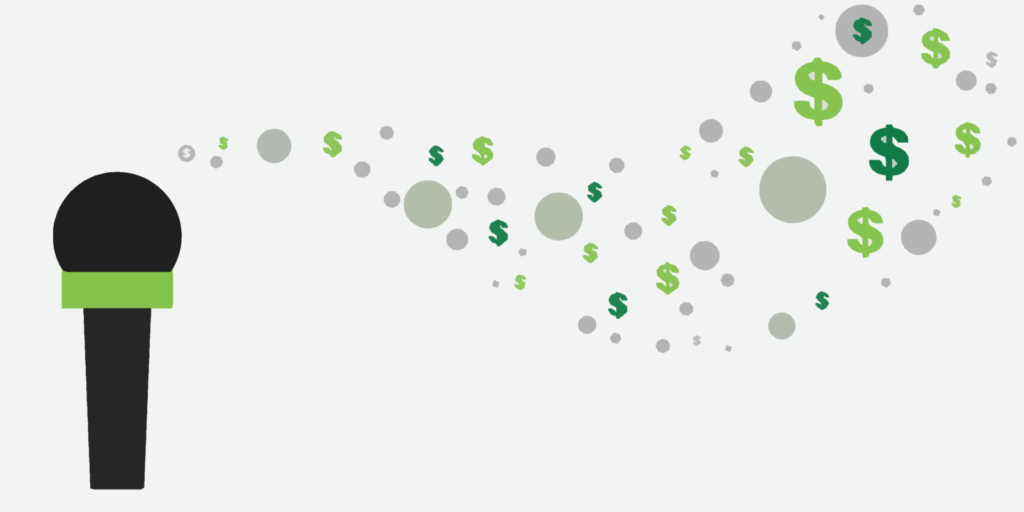
On-air talent in the radio space is a lot like pro sports. The truly greats are few and far between.
And everyone’s trying to work up the rungs of the ladder – a better daypart, a larger market, more money. And specific career and life goals differ in some cases wildly from talent to talent.
We quantified the aspirations and goals of on-air radio pros (and producers) twice in our AQ studies in partnership with Morning Show Boot Camp. In 2018 and again in 2019, we surveyed air talent in the U.S. – and they came out in droves to let us know their thinking. Each study attracted more than 1,000 responses – robust turnouts that helped us better understand the talent mindset.
And what do air personalities in America aspire to – what’s in it for them?
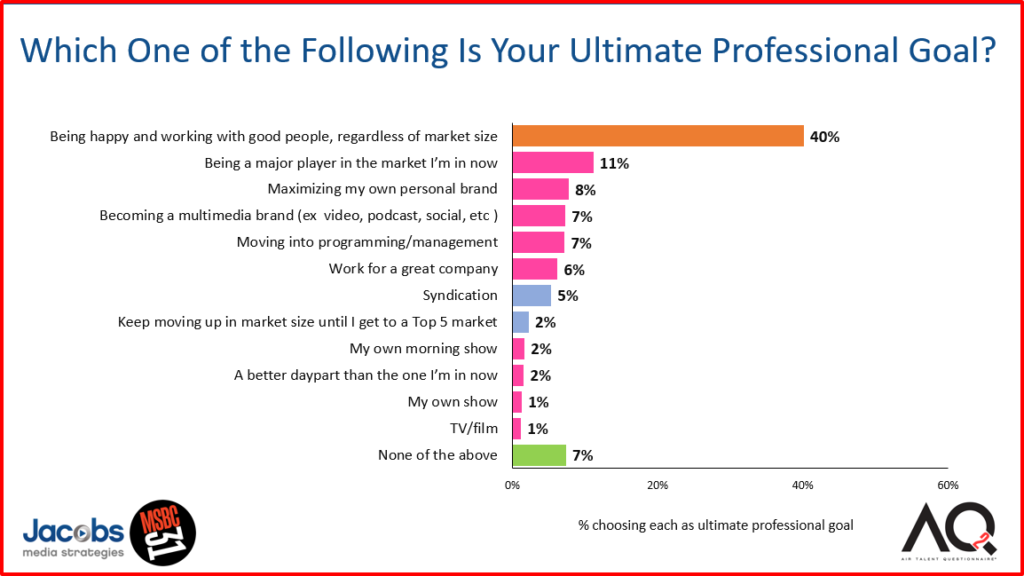
Many found this chart eye-opening. Environment, a great working situation, and success in their current market was the top choice. Bigger goals – syndication, larger markets, and a morning show paled by comparison.
We will be launching a third wave of these studies early this summer – in time for Boot Camp in Chicago in mid-August. And you have to wonder whether the combination of more downsizing and COVID will alter the hierarchy of aspirations.
At the highest levels, those goals appear to be more malleable, especially when talent realizes the sky’s the limit in the building of their brands – and possibly their empires.
Podcasting king Joe Rogan is a good case in point. When the hordes of podcasters get melancholy about why their shows aren’t doing so well, Rogan might provide some inspiration.
Exactly one year ago, he cut the biggest podcast deal ever with Spotify, reportedly for $100 million for an unknown number of years. The Joe Rogan Experience is free to all Spotify users (roughly 155 million premium subscribers). Previously, Rogan’s content was available to a much larger audience on YouTube.
But $100 million is well, a lot of money.
Did Rogan give up anything else?
Statista’s Martin Armstrong suggests there may have been a tradeoff – that less reach (in radio parlance, cume) translates to less influence. In a recent story aptly titled “Is Joe Rogan’s Spotify’s Exclusivity Damaging His Relevance,” he makes his case.
Armstrong turned to TecTalk who reports that search traffic for “Joe Rogan” (and related searches) has dropped precipitously since the Spotify deal began. Here’s the way Statista tracked the Google Search data:
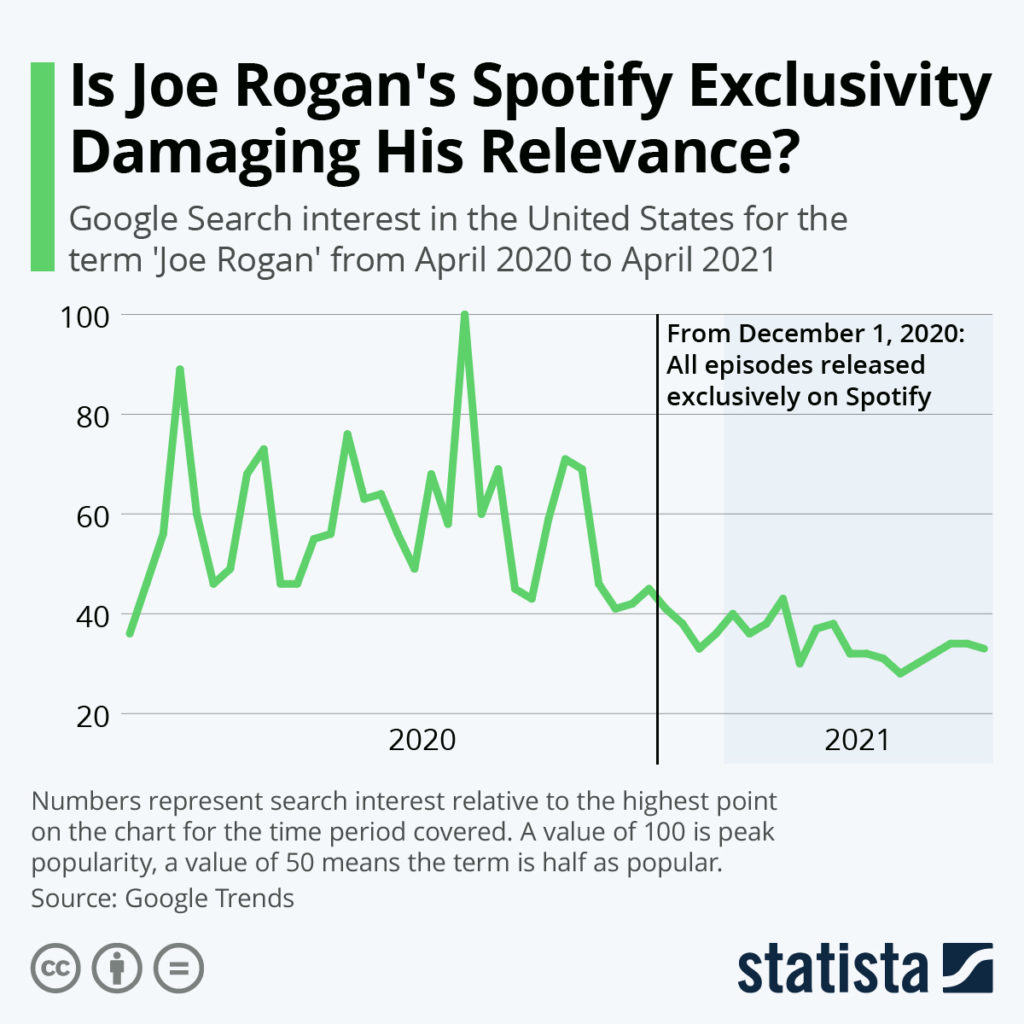
There are many possible reasons for this apparent drop-0ff. Among them, the removal of Rogan videos from YouTube, which has a much higher reach. Many Rogan fans were initially upset about the move, supposedly threatening to never listen again.
There’s Spotify’s policy of not publishing comments for their stable of podcasts – a move Rogan has actively pushed back on. Finally, there’s Rogan’s well-publicized stance on the COVID vaccines for young people. He questions their validity:
Spotify’s Joe Rogan encourages “healthy” young people not to get a coronavirus vaccine. His show is Spotify’s most popular podcast.
“If you’re like 21 years old, and you say to me, should I get vaccinated? I’ll go no.” pic.twitter.com/5dX98xUaHS
— Alex Paterson (@AlexPattyy) April 27, 2021
Whether Rogan’s reputation is truly getting dinged by any of these factors is unknown. And it all may be much ado about nothing.
But accepting a smaller audience for a larger paycheck is the question that many air personalities and podcasting might be weighing.
And there’s precedence for Rogan’s move – namely, Howard Stern’s departure from his syndicated show that was being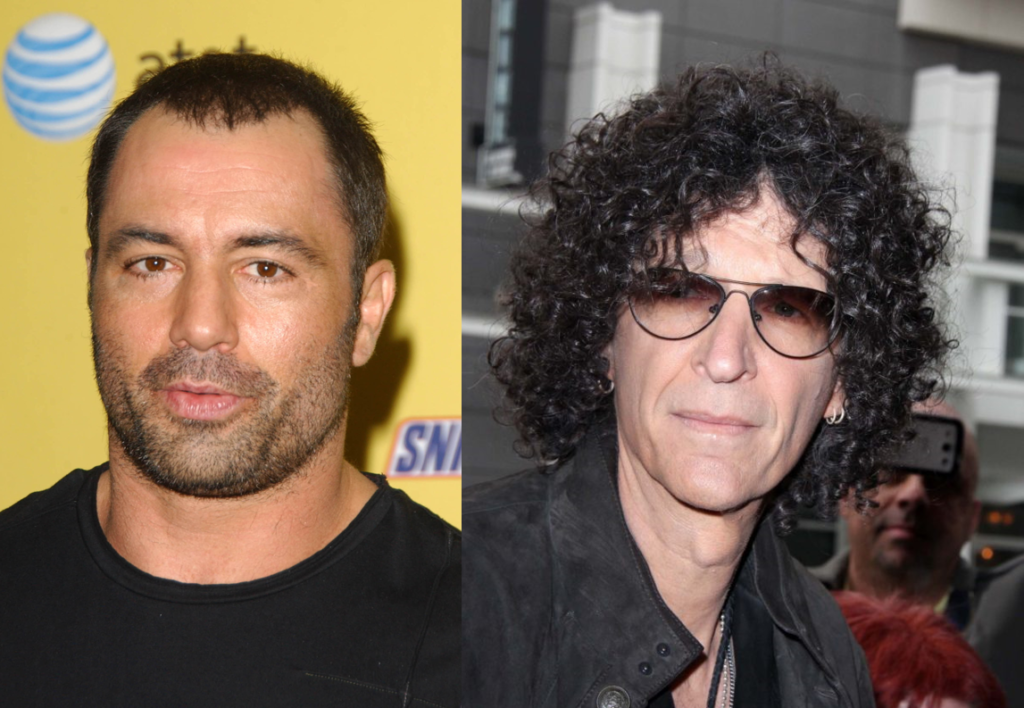 broadcast on 60 terrestrial stations, drawing an audience of 20 million fans.
broadcast on 60 terrestrial stations, drawing an audience of 20 million fans.
But not just any listeners. The Stern show was on the air in New York, L.A., Philly, D.C. and other major markets during its two decade syndication run.
Was Stern’s influence dampened when he left the broadcast airwaves for Sirius’ much smaller subscriber base – especially 15 years ago? Likely so.
Anecdotally, the volume of “Did you hear what Howard said this morning?” seemed to diminish when he became a satellite-delivered show. Over the past 15 years, his presence on Sirius has been formidable, helping the platform to grow subscribers – and attention.
When Howard defected to Sirius in 2006, the circumstances appeared similar to Rogan’s move to Spotify last year.
With a key exception. For years, Stern and owners Infinity and CBS were being hounded by the FCC over content issues. This may have reached a zenith during the Janet Jackson/Justin Timberlake kerfuffle at the Super Bowl in 2004. Did that “wardrobe malfunction” on network television influence Stern to seek shelter – and a large contract – from Sirius?
It couldn’t have hurt. Like many radio personalities of that era, Howard was often under attack by various interest groups, no-Stern advertiser lists were well-known, and the environment was tenuous. And Stern was the poster boy for these shows.
We appear to be at an inflection point in broadcast radio. That now well-known finding from our newest Techsurvey, suggesting the appeal of personalities is eclipsing music as a driver for listenership has rightfully generated a great deal of attention.
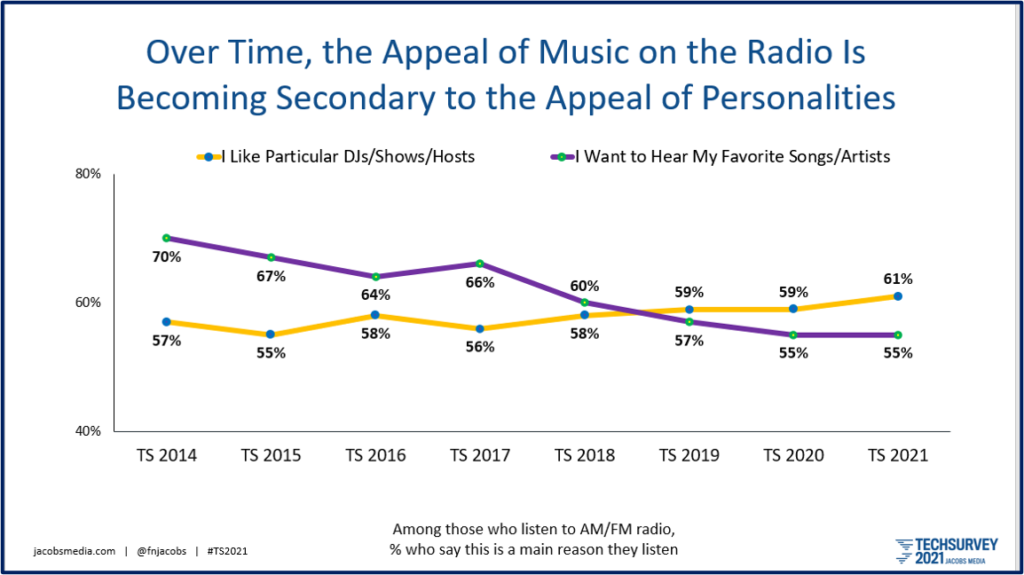
After all, any radio station can play Justin Timberlake or Janet Jackson songs.
But Howard Stern can only be heard on Sirius.
And Joe Rogan can only be found on Spotify.
Each is paid a lot of money. But how can you put a price on the value of proprietary content?
Salary vs. search.
Cash vs. cume.
Riches vs. relevance.
Perhaps, those are the questions.
Thanks to Lori Lewis for inspiring today’s blog post.
Stay tuned for details on AQ3, the next chapter in our research studies of air talent in collaboration with Morning Show Boot Camp. Info here.
- Media And Technology In 2025: Believe It Or Not! - April 18, 2025
- In Radio, You Just Never Know - April 17, 2025
- The Secret To Making A Great Podcast (And Great Radio) - April 16, 2025




I think you need to parse out your Techsurvey data (the interesting graph above) a little more, Fred. For example, given the inevitable, inexorable proliferation of popular-music variety and its accumulation over decades–the collection just gets bigger and bigger–might not the trend that now favors air talent over artists/songs simply reflect listeners’ increasing trust in hosts’ curatorial abilities rather than the personalities of those hosts?
I long ago gave up trying to keep up with the relentless gusher of musical output; it’s far more time-effective for me simply to tune to those whose taste and judgment I trust. And, as previously noted, so far as the vast majority of air hosts are concerned, their personalities (as evinced by what they yammer about between songs) are usually a minus rather than a plus.
I do not specifically know, John. I think it’s a lot of things, including curation. Remember we’ve got 470 different radio stations in the mix here, so we’re talking to fans of Active Rock, News Talk, and Hot AC. So I suspect that depending on the personality and the station, the defining reasons are all over the map. Thanks for the comment.
I can only speak for myself, as just another old guy on the Internet. I listen/watch Rogan much less since his move to Spotify. I used to watch/listen to him on YouTube much more before the move. I don’t even think I have a Spotify account. Not sure. Either way, I don’t use it. Never liked the idea of renting music. I’ve got my own Plex server with all the music I want to listen to, contemporary music doesn’t really do it for me. So yea, his move to Spotify definitely impacted my habits of listening to Rogan. Now I find 10 minute chunks of Rogan ‘promo’ clips, I watch them and haven’t yet ventured over to Spotify to watch the full monty.
When habits are disrupted, especially be tech changes, people often behave the way you have. You’ve gravitated to the next best/easiest way to access Rogan. And it doesn’t always work to the artist’s or the platform’s favor, John.
“the appeal of personalities is eclipsing music as a driver for listenership has rightfully generated a great deal of attention.”
This comes as the perfect storm where even in major markets, you maybe have 2 live jock dayparts, the rest voice tracked. The actual talent has been heading for the hills for years now. The broadcast monopolies have dug their own grave. I for one will not send flowers. Let them have their scraps.
“Perfect storm” describes it aptly.
Excellent article. There is no doubt that money is important. And for many in radio market size is important. That’s cool. But for some, nothing takes the place of being able to go into the studio to do your show knowing in advance that no one is going to BOTHER you. That feeling is “gold.” To be able to go to the station knowing that your mailbox will not be filled with petty, nitpicking memos. To know in advance that the hot line won’t be ringing because your intro to a song could have been just a “little” bit better. You may ask, when do you have a radio station where these incidents do not happen? Answer: When you have management that knows how to treat people in a professional and friendly manner. In other words, they are easy to get along with. An atmosphere like that? Priceless. For everything else there’s Master Card.
I could not have somehow boiled this down to a question in a research study, Curt. Thanks for articulating an emotional state of mind so articulately.
Wow, what a great comment, Curt! I think it speaks to when real radio people–those with radio in their veins, who couldn’t NOT be in radio–RAN radio, and hired people they trusted enough to give them the keys of the car WITHOUT having to sit in the backseat telling them what to do. The people who put them in the drivers seat trusted their judgment, and they in turn proved their trustworthiness. Everyone was happy–including the listeners and advertisers.